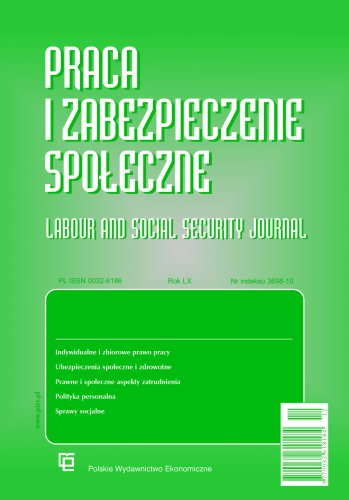Labour and Social Security Journal 08/2023
ISSN: 0032-6186
Pages: 60
Publication date: 2023
Place publication: Warszawa
Binding: paperback
Format: A4
Publication date: 2023
Place publication: Warszawa
Binding: paperback
Format: A4
DOI: 10.33226/0032-6186.2023.8.2
JEL: K31
DOI: 10.33226/0032-6186.2023.8.3
JEL: K31
DOI: 10.33226/0032-6186.2023.8.4
JEL: K31
DOI: 10.33226/0032-6186.2023.8.5
JEL: J28, K31, K32
DOI: 10.33226/0032-6186.2023.8.6
JEL: K31
DOI: 10.33226/0032-6186.2023.8.7
JEL: K31
DOI: 10.33226/0032-6186.2023.8.8
JEL: K31, K23
DOI: 10.33226/0032-6186.2023.8.9
JEL: K31
DOI: 10.33226/0032-6186.2023.8.10
DOI: 10.33226/0032-6186.2023.8.11
JEL: K31
| Odbiór osobisty | 0 € |
| Inpost Paczkomaty | 4 € |
| Kurier Inpost | 4 € |
| Kurier FedEX | 4 € |
| Free delivery in Reader's Club | from 47 € |

